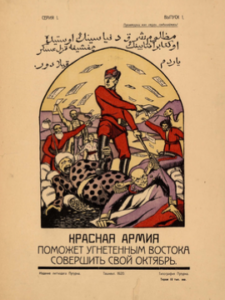Menu
Rossen Djagalov
New York University

Rossen Djagalov is an Associate Professor of Russian and Slavic Studies at NYU. His interests lie in the relationship between culture and Marxism, in Soviet(-bloc) internationalism, and the history of the left, from the nineteenth to the twenty-first centuries. His first book From Internationalism to Postcolonialism: Literature and Cinema between the Second and the Third World (2020), reconstructs the Soviet genealogy of postcolonial literature, film, and ultimately, theory. Currently, he is completing a book on multinational Soviet literature, the institutions such as the literary journal Friendship of the Peoples, which held it together, and the evolution of the non-Russian Soviet Bildungsroman. His next book is tentatively titled “The People’s Republic of Letters: Towards a Media History of Twentieth-Century Socialist Internationalism". He is a member of the editorial collective of LeftEast.
Talk Information:
Between Structure and Imaginary: The October Revolution and The Global South
October 6, 2023 | 9:00 AM
For all its contradictory nationalities policies at home, in the first two decades following the Bolshevik Revolution, the Soviet Union was the only country not only verbally committed to anti-imperialism globally but also willing to expend significant material resources and support actual movements in the (semi-)colonial world. That de facto monopoly, combined with the vague knowledge that existed about interwar-era USSR in the Global South, allowed a whole generation of radical thinkers and activists from the latter to re-imagine and repurpose Soviet politics and culture for the particular anti-colonial struggles taking place in their societies. Indeed, the impact of the Bolshevik Revolution on the colonial and semi-colonial world occurred at the intersection of the structures and the networks created by the Bolsheviks through the Comintern, significant as they were though inadequate to the ambition to cover the whole of the Global South, and the imaginaries it sparked there, which creatively re-interpreted the Revolution as primarily anti-
colonial.